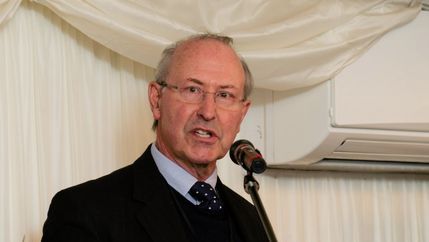Reform, regulation, and regeneration: shaping the property sector in 2025
Propertymark has worked tirelessly to ensure members’ voices are heard, practical concerns are addressed, and reforms are workable as the UK and devolved governments have pushed ahead with major legislative changes. Long-standing challenges around supply, affordability and standards have remained firmly in focus, and we will continue to scrutinise legislation, challenge unclear proposals and provide practical guidance to support members as reforms move from policy into practice across the UK.
Visitor levy rules to be amended before the first schemes begin
The Scottish Government has confirmed it will bring forward new legislation to amend the Visitor Levy (Scotland) Act 2024, giving councils more flexibility in how they design and run local schemes. This sits alongside the existing timetable for visitor levies to start from spring/summer 2026, with Edinburgh already committed to introducing a 5% levy on overnight stays from 24 July 2026.
Further change for holiday lets with new licensing and standards
Rules for short-stay accommodation in Wales are becoming more complicated. New licensing standards, tax changes, planning rules and a visitor levy are all being introduced, creating major implications for agents and landlords. For property professionals, this brings both challenges and opportunities — the risk of higher costs, reputational damage, and penalties for non-compliance, but also the chance to stand out by offering well-managed, compliant accommodation that builds trust with guests and demonstrates higher standards.
Legal challenge over Article 4 Direction on short-term lets
Gwynedd Council has confirmed it will appeal after a High Court judgement ruled its Article 4 Direction, intended to require planning permission for converting homes into holiday accommodation, was unlawful. The case is the first major legal test of new powers given to local authorities in Wales to control the growth of short term lets and second homes.
Refinement to holiday let tax rules
Proposed refinements to the classification of self-catering properties for local tax purposes have been put forward by the Welsh Government, with a consultation open until 20 November 2025. Whilst many holiday lets have met the thresholds that are in place, adjustments have been called for to reflect the operational realities of running a seasonal business.
Edinburgh leads the way as councils gain power to charge overnight visitors
The first Scottish city has introduced a visitor levy, adding a 5% charge to overnight stays from 24 July 2026. The charge will apply to bookings made on or after 1 October 2025, and letting agents and landlords should start preparing now.
London’s housing future hinges on bold action
Propertymark has issued a robust response to the Mayor of London’s consultation on the next London Plan, warning that without urgent action to address the capital’s acute housing shortage, the Plan risks failing to meet its fundamental aims. The proposals lack critical focus on the role of the Private Rented Sector (PRS), underplay the challenge of housing delivery, and fail to fully embrace the potential of private landlords to meet housing need.
Peers call for urgent progress on RoPA and short-term lets
Amendments to the Renters’ Rights Bill discussed on 12 May 2025 highlight growing support for the regulation of property agents (RoPA), including professional standards and mandatory qualifications, as well as increasing awareness of the market imbalance between the private rented sector (PRS) and holiday lets. Led by Lord Best and backed by senior peers, the amendments sought to push the UK Government to take faster action, referencing Propertymark’s campaign positions on both these key issues.
Welsh Revenue Authority prepares for bigger role as visitor levy plans progress
A new Corporate Plan for 2025 to 2028 sets out how the Welsh Revenue Authority (WRA) will expand its responsibilities and strengthen service delivery. The plan signals a step change in the WRA’s role, with implications for agents operating across the short-term lettings and tourism sectors in Wales.
Aggressive second-home penalties drop house prices by 12.4%
Cyngor Gwynedd (Gwynedd Council) was quick to use new tax powers to raise the premium rate for second homes and short-term lets (STLs) to a rate of 150% from April 2023 and went on to be the first council to use an Article 4 direction, removing permitted development rights to change a main home into a second home or short-term holiday accommodation, in September 2024. The outcomes of implementing these new measures are being carefully watched by the housing sector.
Failure to prioritise local homes will stunt the long-term growth of communities
MPs debated the regulation of short-term lets (STL) and second homes in England on 23 October 2024, and Propertymark’s briefing pack was shared with those taking part to ensure they were equipped with key statistics and vital member insight. Whilst policymaking should recognise the economic benefits of the tourism sector, there is an urgent need to create and protect a healthy and balanced property ecosystem as the UK tackles the housing and cost-of-living crises.
STL licensing report suggests scheme is raising standards despite concerns
On 30 August 2024, the Scottish Government published a report outlining the progress of its short-term lets (STL) licensing scheme since its implementation in October 2022. Propertymark supports the introduction of STL regulation with the aim of bringing them in line with standards in the private rented sector, and we are encouraged by evidence suggesting the safety and quality of properties is beginning to improve.
Fairness returns as holiday let tax breaks scrapped
HMRC is abolishing tax breaks for furnished holiday lets (FHLs) to take effect from April 2025, bringing in an extra £35 million to the exchequer in the first year. Propertymark has long called for parity between short-term and residential letting, and we welcome this move towards greater balance in the market.
First use of Article 4 powers to control short-term lets confirmed
The implementation of the new rules will mean property owners in the designated area must gain planning permission before changing the use of a main home into a second home or short-term holiday accommodation. Gwynedd Council will bring the Direction into effect from 1 September 2024.
Five property Bills included in First Minister's legislative plan
Rt Hon Vaughan Gething, MS, has set out his priorities for the rest of this Senedd term, with building safety, homelessness, visitor accommodation, and planning all forming part of the programme. Radical and transformative change which matters most in people’s lives is what the Welsh Government will be concentrating on, and the First Minister is looking forward to a renewed, genuine partnership with the new UK Government to unlock opportunities across Wales.
Updates to licensing give short-term lets more flexibility
Following the introduction of a licensing scheme in October 2022, the Scottish Government has been monitoring the impact of the legislation on consumers and the sector. Engagement with accommodation operators has resulted in improvements which allow the transfer of licences, more exemptions, and provisional licences for new properties. MSPs approved these measures on 26 June 2024.














